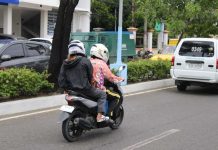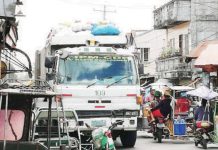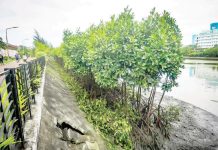
OF THE many who are bearing the economic brunt of the months-long lockdown, the informal sector has probably had it worse than others.
The very nature of their employment makes them invisible to the eyes of government, and hence, they do not immediately receive monetary aid or wage subsidy.
For instance, throughout the first tranche of the Social Amelioration Program (SAP), LGU staff were requiring certificates of employment (COE) from supposed beneficiaries — a step which only made it difficult for the freelance plumbers, repairmen, construction workers, street vendors, and many more who desperately needed support.
According to the International Labour Organization (ILO), the informal economy is made up of independent, self-employed small-scale producers and distributors of goods and services. Informal workers are own-account workers and employers, members of cooperatives and other similar organizations, and workers in unregulated or unrecognized employment relationships.
This classification also includes some who do work in the formal economy, such as those in subcontracting, supply chains, and paid household domestic work. These informal workers are usually not covered by a country’s labor laws and regulations, making them a vulnerable segment of the population.
Here in our country, this segment is large and growing. From an estimated 10.5 million Filipinos in 2008, this sector has grown to 15.6 million by 2017, according to the Philippine Statistics Authority. In fact, in 2016, this so-called “unorganized sector” accounted for up to P5.016 trillion — or more than one-third — of the country’s GDP.
Hence, in the face of the pandemic, these workers should be integrated into the formal economy. And the first step should be to identify where they are and create the necessary database so that government assistance can be readily given in times of need.
In Brazil, a $24-billion program for healthcare and support for lost income was outlined to help informal workers. In Chile, a $2-billion fund was created to distribute resources and boost employment — 2.6 million informal workers are expected to benefit from it. In Paraguay, 1.1 million informal workers who earn more than minimum wage was added to their health emergency subsidy program. All these actions need extensive databases of a country’s informal workers.
To this end, I filed SBN 1636, or the Informal Economy Registration and National Database Act. If approved, this act will first empower the Local Development Councils (LDCs) in Local Government Units to establish a simple and standard registration system for informal workers, units, and organizations.
For workers, an identification card and a record book will be issued. The book will list all the services and benefits that have been availed of. For informal economic units, relevant information and payments collected will be recorded.
An Informal Economy One-Stop Shop shall also be created to process transactions, permits, and other applications and licenses. Informal economy associations and organizations will be directed to register with the Department of Labor and Employment. All this information will be collected into a national database by DOLE, in cooperation with the National Economic Development Authority, and will be revalidated and reported on regularly.
It should be noted that a National ID system could also have fulfilled this database’s functions, aiding the government in identification and distribution of assistance during the quarantine.
When it comes to assistance that should be given to informal workers, I refer to another bill I filed, SBN 328, the Magna Carta of Workers in the Informal Economy (MACWIE). Though I have submitted earlier versions of this since my days in the House of Representatives, it is my hope that it will soon become law.
The MACWIE specifies, for example, that informal workers should have social security benefits, access to PhilHealth and other services such as quality childcare, and other government resources and support that can be combined into a Social Protection Floor initiative. Surely, these assistance programs and benefits would have greatly eased the suffering of informal workers during this pandemic.
The first step in assisting our informal workers is having accurate information about them, so we can properly plan and execute effective government projects and actions. It is why we need the Informal Economy Registration and National Database Act. With 15.6 million Filipinos who may be “unseen” by the government, it is time we recognize and keep tabs on them, so that they can finally be integrated and provided the support they desperately need.
***
Sen. Sonny Angara has been in public service for 15 years — nine years as Representative of the Lone District of Aurora, and six as Senator. He has authored and sponsored more than 200 laws. He is currently serving his second term in the Senate. (Email: sensonnyangara@yahoo.com | Facebook, Twitter & Instagram: @sonnyangara/PN)





